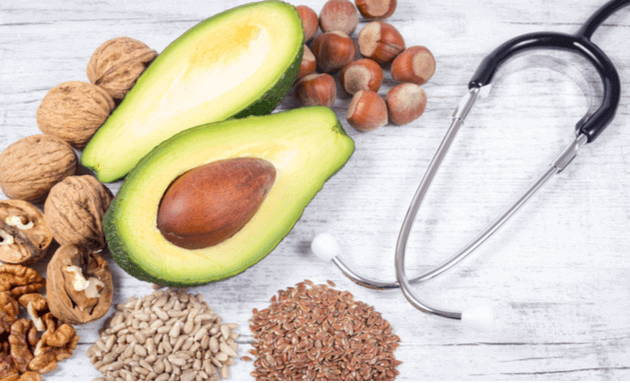7 Nutrition Tips For People With HIV AIDS

HIV (Human immunodeficiency virus) is a deadly virus that can compromise your body’s ability to fight life-threatening infections. HIV, in its most advanced phase, can manifest in a debilitating condition called AIDS ( Acquired immunodeficiency syndrome). People suffering from this AIDS struggle to stay healthy due to their compromised immunity and have to follow a strict set of dietary guidelines to manage the debilitating symptoms of this disease.
What You Need To Know About HIV/AIDS Friendly Diets
Here are 7 important nutrition guidelines you need to keep in mind when you design an HIV/AIDS friendly diet.
1. Start with the basics

Contrary to popular opinion, designing a diet for HIV patients does not require you to drastically re-invent the wheel. A balanced diet rich in vegetables, whole grains, proteins and healthy fats is a good starting point in your quest for designing a rounded diet for patients with HIV/AIDS.
2. Maintain your ideal body weight
It is a common belief that severe weight loss is a defining characteristic ofAIDS. The truth of the matter, however, is that HIV/AIDS patients can also be several kilos over their ideal body weight at times. Being overweight can not only put an unwanted strain on your body's immune system but can also increase your risk of developing cardiovascular problems like Hypertension, Diabetes and even certain cancers.
3. Build muscle with Proteins

An AIDS diagnosis, especially in its advanced stages, can cause severe muscle mass loss. Add 100-150 grams of low-fat protein like Lentils, nuts, chicken, fish and eggs to your diet to help your body regain and maintain its precious muscle mass. Make it a point to discuss any drastic increase in protein consumption with your doctor. This is important because a higher than usual intake of protein can put an unnecessary load on your kidneys (in case you have preexisting renal issues).
4. Add Carbohydrates for energy
Carbohydrates are a great source of energy. Our recommendation is to get your energy from complex carbohydrates like brown rice, oats and whole wheat bread instead of simple carbs like refined flour (maida) and sugar. Make it a habit to pair your carbs with a few cupfuls of fibrous vegetables for a well-rounded diet especially if you’re a diabetic ( too much rice can dangerously elevate your insulin levels).
5. Get the right kind of Fat

Fats are where things get complicated. Have too much, and you run the risk of having too many calories (especially if you're overweight) and have too little and you miss out on an important source of energy. A good rule of thumb is to get 30% of your daily calories from healthy fat sources like nuts, olive oil, cheese and eggs. Remember to limit your intake of saturated fats (like palm oil or fatty meats) to under 7%.
6. Boost your Immunity with Vitamins and Minerals
HIV/AIDS can severely deplete your body of its vital nutrients. This is why it is important to replenish your spent reserves of mineral and vitamins to help your body’s healing processes. Get your essential vitamins with green leafy vegetables (rich in Vit E), citrus fruits (rich in Vit C) and meat (Vit B). You should also get some select minerals like Calcium(Dairy, Leafy Vegetables), Selenium (Nuts, Chicken, Whole Grains) and Zinc (Fish, Milk, Beans).
7. Follow stringent food safety standards

HIV/AIDS can make a significant dent in your body's defence systems. The implications of this are that even the mildest instances of food poisoning can at times escalate into major infections. You can, however, pre-empt such scenarios by following some preventive practices like
- Washing your hands before cooking and after you eat.
- Avoiding the consumption of raw/uncooked foods.
- Thoroughly washing your vegetables and utensils before cooking.
- Avoiding the consumption of expired foods.
Eating can be a complicated affair when you have illnesses like AIDS. Avoid using too much spice, salt and oil when you cook food for an HIV patient. Make it a point to consult your doctor if the patient experiences eating difficulties like constant nausea or lack of appetite.






